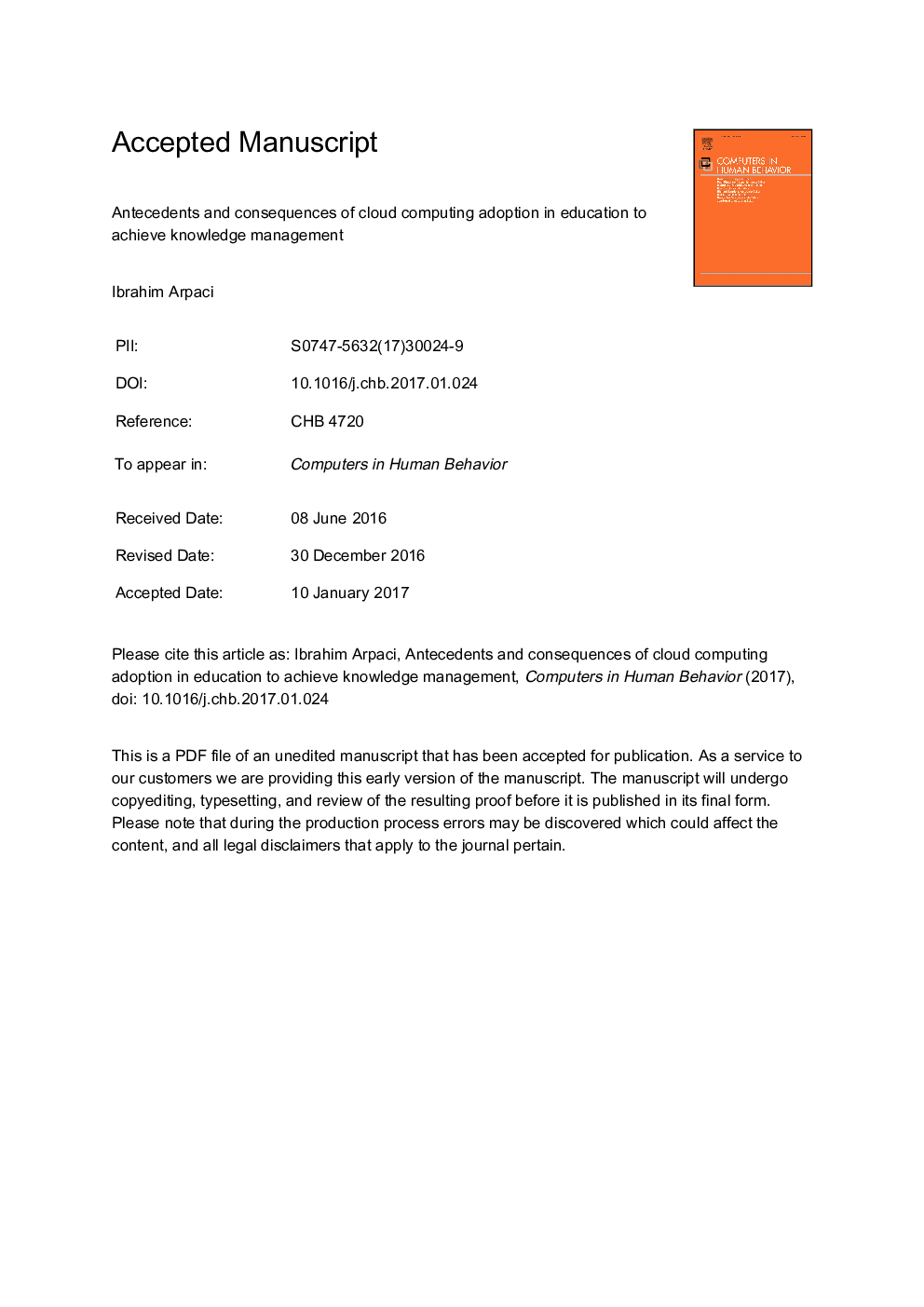| Article ID | Journal | Published Year | Pages | File Type |
|---|---|---|---|---|
| 4937309 | Computers in Human Behavior | 2017 | 36 Pages |
Abstract
The effective management of knowledge is critical to achieve high academic performance, effectiveness, and efficiency. Adoption of cloud computing in education has the potential to enhance the management of knowledge. This study aims to investigate the antecedents and consequences of cloud computing adoption in education to achieve knowledge management. Thereby, this study implemented the cloud computing in an authentic learning environment to support knowledge management practices and provided participants with training and education. Pre-tests and post-tests were administered on the first and last week of the 14-week intervention. This study examined the causal relationship between the expectations for knowledge management practices and the perceived usefulness of cloud computing services. Further, the causal relationships among innovativeness, training and education, and perceived ease of use were examined in the study. Survey data collected from 221 undergraduate students were analyzed by using structural equation modeling to validate the research model. The results indicate that the perceived usefulness is significantly associated with the expectations for knowledge creation and discovery, storage, and sharing. Amongst others, the expectations for knowledge storage and sharing have a stronger relationship with the perceived usefulness. Further, innovativeness and training & education are significantly associated with the ease of use perceptions. The findings suggested that educational institutions may promote adoption of cloud computing in education by increasing the awareness of knowledge management practices.
Related Topics
Physical Sciences and Engineering
Computer Science
Computer Science Applications
Authors
Ibrahim Arpaci,
